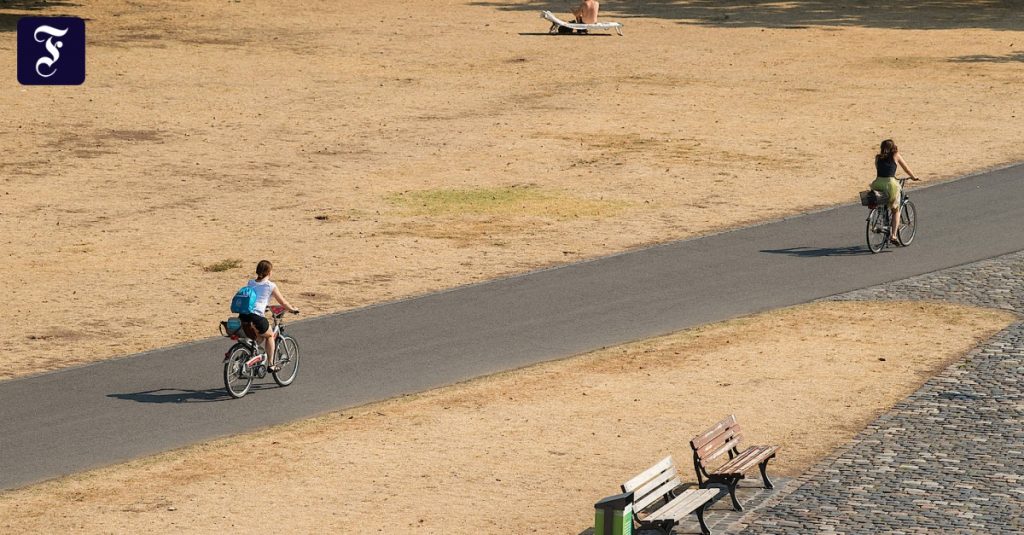Mr. Schmid, what can the conference in Glasgow bring? Will the goal of stopping global warming at more than 1.5 degrees still be achieved?
If so, then there should be zero greenhouse gas emissions by 2030. However, if we look at the commitments currently on the table, we have a 16 percent increase in greenhouse gas emissions by 2030. We must be very ambitious. So we can achieve the 1.5 degree goal.
What is Hessen’s goal?
The Federal Republic wants to be climate neutral by 2045. Hessen is among those.
Do we have much time left?
No, it’s too late. Like I said: For the 1.5-degree target, it should be net zero in terms of greenhouse gas emissions by 2030. Instead, we’re still moving toward increasing.
This also applies to Hessen?
Yes really. We have to turn things around on a large scale, and make the right interventions in order to reach the zero greenhouse gas limit, and thus reach only 1.5 degrees of global warming.
What if we lose the mark?
The worst prognosis assumes that if we continue as before, we will end up in Hesse in 2100 at plus four degrees Celsius. This may not seem like much at first, but it will of course have a huge impact. We are already noticing the effects Climate change In Hesse: the number of hot days has tripled, and heavy rains are becoming more frequent and intense. If we stay on this path, this will become more and more evident. In addition, there will be a dry summer with dry streams. We will get a climate like the one prevailing in the Mediterranean at the moment. Greece would be a great example to use as a guide. This is what it would be like if we did nothing.
What if the warming stopped at 1.5 degrees or two?
Then we can prevent 75 percent of those changes. This would leave the number of hot days as we know them from the past three years. This will not increase any more. The change will be moderate.
Will we have a hot, dry summer like in the past three years?
We’ve been seeing such a hot summer every now and then. If we do nothing, hot summer of 2018 will become the norm. There will be a summer that will be hotter.
This has consequences for nature.
Forests are already changing. Fir cultures are dying. Should the worst case happen, nature and the environment would of course change much more.
With palm trees and street trees?
Not necessarily palm trees. Winter will still be much colder than in North Africa. But we will have other species, those that are currently growing in the Caucasus and the Mediterranean, where it is already drier in summer but cooler in winter.
So nature will look different.
Tree species will gradually migrate from these other areas. One must also know that the natural succession lasts about 1,000 years. You have to see how we can handle it in such a violent scenario. I didn’t want to experience a world four degrees warmer, Hesse four degrees warmer.

“Total coffee aficionado. Travel buff. Music ninja. Bacon nerd. Beeraholic.”









More Stories
Coral Seeding: Artificial Insemination Makes Coral More Heat Tolerant
Fear, Anger, and Denial: How People Respond to Climate Change – Research
LKH Graz: Using radiation to combat heart arrhythmias